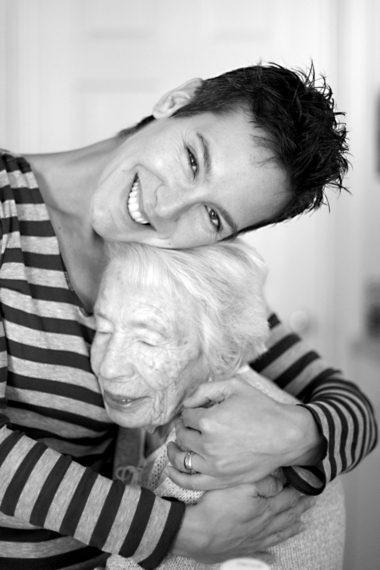In many ways, the last few weeks on planet Earth have been bleak. There have been terrifying plane crashes, heart-wrenching massacres and shocking hostage takings and terrorist attacks. For the first time since WWII, the largest synagogue in Paris did not hold shabbat services. Despite my only occasional attendance at such services, I expect that they will go on. I garner comfort in knowing that despite the chaos of life, certain traditions remain.
But when I woke up the other day to a front page story about an estimated 3.7 million people in Paris and around the world marching in unity, I felt hopeful. 3.7 million people moved beyond their grief, their fear, their hopelessness, their business, and prioritized unity -- togetherness -- connection. For a few hours people were thinking about what bonded them to one another rather than what separated them.
We do each hold unique identities. Each one of us has a story. My message to you is that if we each do our individual work to heal from the hurts of the persecution of our people -- whoever our people are, that alone will make parenting, family life, and the world a better place.
I was accused this week of looking at the world through rose-colored glasses. (Better than the guy who called me a doormat!) And maybe I do. But what I think my "fan" was sensing is that despite all the dark realities of our current world, I am still committed to working towards making it a better place. In Judaism, we call this "tikkun olam." And sometimes I find the best first step is to "tikkun" (fix) my own "olam" (world).
Last April, I cried about the Holocaust. I had 10 minutes of a supportive listener on the other end of the phone line, and I intended to talk about my current challenges with my boys in school. Obviously, my soul/inner self/whatever you want to call it knew where I really needed to work, and I felt like Superman flying through the air, back in time, and I was terrified!
The day before, my oldest and I had met a man in an elevator who was a Holocaust survivor. He had survived four and a half years in a concentration camp, and lost his entire family. He was a lively 95-year-old now, coming together with others in his community to commemorate all those who perished in the war.
It was serendipitous that we ran into this man the day before two survivors came to my boys' school to share their stories. I was worried about how they'd react. About what feelings might come up for them. About whether I'd be able to answer their questions.
My oldest said the survivor who spoke to the middle school students "actually didn't have it that bad... compared to others." He hid as a Catholic orphan in a convent until the war was over, and his aunt came and picked him up and brought him to his father. When he asked about his mother, his father said, "She died. And we will never talk about it again." That was "not so bad."
As I sat down at the kitchen table to work, I realized that when I had entered the house earlier, I noticed the mezuzah (nothing new) on our door. (A mezuzah is a small scroll of parchment with an inscription, housed in a decorative case, and hung on the doorpost, traditionally as a reminder of our obligation to God. I'm not so into the God stuff, but it has still always felt important to mark our Jewish home with a mezuzah.) My gaze also rested upon the beautiful Hamsa that we had recently received from house guests at our Passover seder. I wondered silently whether it was a good idea to have these symbols hanging out there -- so blatantly.
And just the hour before, I had sat in front of my computer staring at my health insurance provider's website, vacillating over whether or not to click "Jewish" under the heading "Heritage." "Well, I do carry at least two diseases very common to Ashkenazi Jews, and it's important that medical professionals are aware," I thought to myself. But it felt really scary to click.
So, instead of stomping my feet in frustration at my sons' seeming inability to complete a task without 18 reminders, I took my 10 minutes and I shook uncontrollably with terror. I wailed for all the children who lost their parents, and all the parents who lost their children. And then when my 9-year-old came home talking about every detail of the story they read in class, and said, "I want to ask you about the Holocaust. It's really interesting." I could breathe deeply and ask, "What would you like to know?" And the questions felt like a game of catch, rather than a firing squad.
I want the world to be a more accepting and peaceful place. I recall my 94-year-old grandma apologizing to me for leaving the world in such a horrible state. My grandma who had fled pogroms in Russia as a little girl after witnessing unfathomable violence, sent her husband off to fight a war, and witnessed several others, looked me in the eye and said, "It has never been this bad."
Yes, it's bad. But please allow me to don my rose-colored glasses and remember that we humans are all connected. If we think about the fact that every single parent wants the world to be a better place for their children, then for a moment, perhaps we can put our differences aside and our heads together. We need not wait for crises to join hands. There's lots to be done, and every small step counts.
